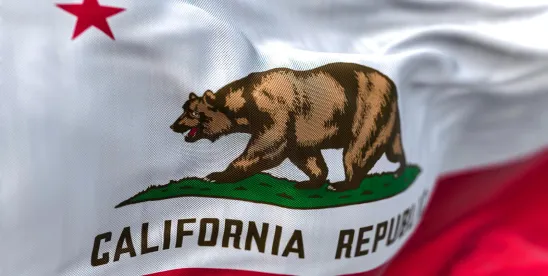In 2004, California enacted the Private Attorneys’ General Act (PAGA), a first-in-the-nation mechanism to expand the enforcement of the state’s robust Labor Code protections for employees. Proponents of PAGA celebrated its objective to allow California employees to seek significant penalties against employers by “stepping into the shoes” of the state. Over the last two decades, employers in California have endured an onslaught of lawsuits bringing PAGA claims, seeking penalties with little to no due process guardrails. Defending PAGA claims significantly impacted the “cost of doing business” in California, and, as a result, reform efforts emerged, led by a handful of businesses, non-profits, social justice advocates, and family-run farms comprising the “Fix PAGA Coalition.” After successfully gaining sufficient signatures to place a PAGA reform measure on the ballot, the coalition engaged in direct negotiations to reform PAGA with the California legislature and Governor Gavin Newsom, culminating in the enactment of amendments to PAGA signed into law on July 1, 2024, and taking effect as of June 19, 2024.
In consideration of the key policy interests at issue — eliminating PAGA abuse, protecting businesses that do the right thing, and allocating a greater share of penalties to employees — PAGA reforms include penalty caps, increased due process safeguards for employers, and incentives for taking all “reasonable steps” to comply with the California Labor Code. The “reasonable steps” measures allowed by the reform can result in up to an 85% total reduction in penalties. Accordingly, it is crucial for employers to become familiar with these measures.
Employers Should Take All Reasonable Steps Now to Ensure Compliance and Limit Exposure
Perhaps the single greatest success for advocates of PAGA reform is creation of clear incentives for employers to take proactive steps towards compliance immediately. Employers can reduce potential exposure upwards of 70-85% by instituting clear and objective measures to comply with the California Labor Code, including (1) conducting payroll audits; (2) maintaining compliant-written policies; (3) conducting training on applicable Labor Code and wage order compliance; (4) taking corrective action against supervisors; and (5) documenting any efforts pertaining to compliance. PAGA reform rewards proactive compliance taken prior toreceipt of a PAGA notice/lawsuit by reducing potential penalties by 85%. Employers who take such “reasonable steps” within 60 days after receiving a PAGA notice are entitled to a 70% reduction.
You’ve Received a PAGA Notice. Now What?
While we have always counseled employers to immediately evaluate potential exposure and take steps to ensure compliance upon receipt of a PAGA notice, the reforms create clear and specific timeframes within which certain actions must be taken to take advantage of penalty reductions. The following chart is intended to provide a roadmap to successfully navigate PAGA litigation within the new framework from the date a PAGA notice is postmarked:
| DEADLINE | ACTION | BENEFIT |
| Before receipt | Take all “reasonable steps” to prospectively comply with the California Labor Code and applicable Wage Orders. | Eliminate 85% of potential penalties. |
| Within 33 days of postmark of PAGA notice | All employers are eligible to “cure” the most commonly alleged Labor Code violations. For larger businesses (i.e., 100 or more employees), the cure must be completed within 33 days of receiving PAGA notice. If the company employed fewer than 100 employees in total during the period covered by the PAGA notice (i.e., the preceding 12 months), the employer may submit a confidential proposal to the LWDA to cure one or more of the alleged violations. | Eliminate all civil penalties for violations that have been cured. |
| Within 60 days of postmark of PAGA notice | Take all “reasonable steps” to prospectively comply with the California Labor Code and applicable Wage Orders. | Eliminate 70% of potential penalties. |
| Upon Filing of PAGA Action in Court (i.e., at least 60 days after notice) | Employers with 100 or more employees may file a request for an “early evaluation conference” and request a stay of court proceedings. This is effectively like a settlement conference and provides an additional path for employers to leverage efforts to cure to reduce or eliminate potential penalties. Note: this process does not go into effect until October 1, 2024. | Allows employers to engage in a mediation-like process to receive a neutral evaluation of claims and a supervised process of curing that can lead to significant penalty reduction. |
Hold the Line: Strategies to Defend PAGA Litigation
In addition to rewarding proactive measures to prevent or cure labor violations, the PAGA reforms create additional procedural safeguards that employers can leverage to advance a strong defense in litigation. Of particular interest are two reforms: (1) increased standing requirements; and (2) empowering the courts to manage PAGA claims. Prior to the reforms, employees were required only to demonstrate that they experienced one violation at any time before they could proceed to pursue penalties on behalf of others under the PAGA. To make matters worse, trial courts were powerless to effectively manage such unconstrained litigation. Now, employers are finally able to go on the offensive by challenging an employee’s standing from the outset. Through effective use of early discovery, employers can seek to limit an employee’s ability to pursue claims they have not personally experienced. Moreover, trial courts are now empowered to “limit the evidence to be presented at trial or otherwise limit the scope of any claim” to ensure it can be “effectively tried.” While the contours of these increased safeguards remain to be developed, employers who are confident in their compliance efforts have more tools than ever to effectively fight back against PAGA litigation.





 />i
/>i

